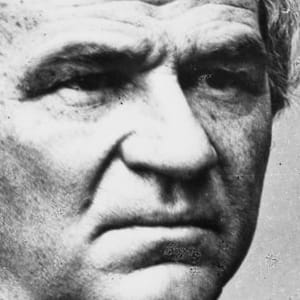in control: Idiom Meaning and Origin
What does ‘in control’ mean?
The idiom in control means to have power or authority over a situation or to be able to direct or manage it effectively.

Idiom Explorer
The idiom "under control" means to have a situation managed or regulated, resulting in a state of calmness or order.
"Large and in charge" is an idiom that means someone is in a position of power or authority, and they are confident and capable of handling their responsibilities.
The idiom "keys to the kingdom" means having access to the most important or valuable things, often referring to having complete control or authority over a situation, organization, or valuable information.
The idiom "in the lead" means to be in a leading or winning position, often in a competition or race.
The idiom "in the driver's seat" means to be in control or have the power to make decisions. It refers to being in a position of authority or leadership.
The idiom "in someone's pocket" means to be under someone's control or influence.
The idiom "in safe hands" means that someone or something is being taken care of or protected by a trustworthy and capable individual or group.
The idiom "in one's pocket" means having control or influence over someone or something.
The idiom "hold the ring" means to be in control or to take charge of a situation or event.
Decoding Mastery
The idiom "in control" refers to having power, authority, or influence over a situation or an individual. It implies being able to manage or direct events, people, or objects according to one's own will or desires. This idiom is often used to describe someone who exhibits a certain level of mastery or dominance in a particular context.
The origins of the idiom can be traced back to the concept of physical control. Historically, the term "control" has been used in various disciplines such as psychology, philosophy, and physics to denote the ability to regulate or manipulate certain variables or entities. In the context of idiomatic usage, "in control" can be seen as an extension of this concept, relating to the ability to exert command or constraint over a given situation.
In contemporary usage, the idiom can be found in a wide range of contexts, both formal and informal. It is commonly used in professional settings to describe individuals who possess the necessary skills, knowledge, or authority to effectively manage a team, project, or organization. For example, a CEO might be praised for being "in control" if they have successfully implemented strategies and achieved desired outcomes.
Beyond the professional realm, the idiom is also frequently used in personal contexts to describe individuals who display emotional or psychological self-regulation. For instance, someone might be described as "in control" if they are able to maintain composure and make rational decisions under pressure.
Additionally, the idiom is often used metaphorically to describe situations or objects. For example, one might say that a car is "in control" if it is being driven smoothly and safely, highlighting the driver's ability to effectively navigate the vehicle.
It is worth noting that the idiom can also have negative connotations in certain contexts. It can imply a sense of authoritarianism, domination, or imposition of one's will onto others. In these cases, the phrase may be used to criticize or question the ethics or legitimacy of the control being exercised.
The related idiom "under control" is often used to describe a situation where someone or something is being managed or regulated effectively. It signifies that a particular situation is being kept in check and is not causing any harm or posing a threat. For example, if a fire breaks out, firefighters may say that the situation is "under control" once they have successfully contained the flames and prevented further damage. In this sense, "under control" implies a sense of stability and management.
An additional related idiom is "in the driving seat," which is used to convey the idea of being in a position of control or influence. It is often used in contexts that involve decision-making or leadership. For example, if someone is described as being "in the driving seat" in a negotiation or business deal, it means that they have the power and authority to steer the process in their desired direction. This idiom suggests an active role in directing and shaping outcomes.
The idiom "in control" has a clear and consistent meaning in American English, referring to the ability to have power, authority, or influence over a situation or an individual. Its origins can be traced back to the concept of physical control, and it is widely used in various contexts to describe both personal and professional mastery. While the idiom is generally regarded positively, it carries potential implications of dominance or authoritarianism. Overall, "in control" encapsulates the nuanced dynamics of power, agency, and regulation in a concise and widely understood manner.
Example usage
Examples of how the idiom "in control" can be used in a sentence:
- She remained calm and confident, showing that she was in control of the situation.
- After years of struggling with his addiction, he finally feels in control of his own life.
- The coach praised the team for their strong performance and credited their ability to stay in control throughout the game.
More "Power" idioms



